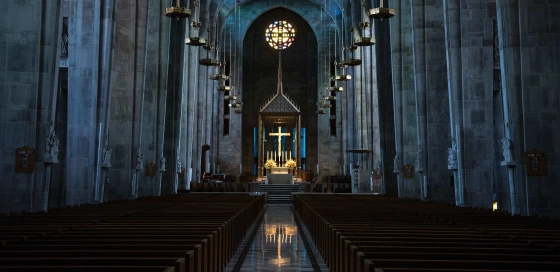Maryland Attorney General Anthony Brown released a 450-page report, identifying 158 priests accused of abusing over 600 victims since the 1940s from the archdiocese of Baltimore. This disclosure comes after a four-year investigation initiated in 2019 by former Maryland Attorney General Brian Frosh, completed in November following the examination of over 100,000 pages of documents, some dating back nearly 80 years.

Attorney General Brown addressed reporters, strongly criticizing the local Catholic archdiocese’s actions. He stated, “The incontrovertible history uncovered by this investigation is one of pervasive, pernicious and persistent abuse by priests and other archdiocese personnel.” Brown highlighted the cycle of repeated dismissal or cover-up of abuse by the Catholic Church hierarchy revealed in the report. In response to the investigation, Archbishop William Lori of Baltimore expressed an apology to victim-survivors, emphasizing “renewed shame, deep remorse and heartfelt sympathy” on behalf of the archdiocese.

A redacted version of the report was ordered to be released to the public by a judge earlier this year. The document outlined a disturbing account of the Baltimore Archdiocese, the oldest Roman Catholic diocese in the nation, which managed parishes, schools, and congregations throughout the state. In some cases, multiple abusers were present within the same church institution. For example, between 1964 and 2004, St. Mark Parish in Catonsville housed eleven abusers.

According to the report, the extensive nature of the abuse itself emphasizes the responsibility of the Church hierarchy. It stated, “The sheer number of abusers and victims, the depravity of the abusers’ conduct, and the frequency with which known abusers were given the opportunity to continue preying upon children are astonishing.” This report adds to an increasing list of sexual abuse allegations against the Roman Catholic church in the US and worldwide, with revelations of abuse and systemic cover-ups first emerging after a 2002 report by the Boston Globe newspaper.
The report acknowledges that new national policies, implemented after the Boston Globe’s exposé, have considerably improved the church’s internal handling of sexual abuse reports. However, it also identified numerous shortcomings in the Baltimore Archdiocese’s efforts to combat abuse. Issues included the release of an incomplete public list of abusers, allowing alleged abusers to retire with financial support, failure to report allegations to authorities, inadequate investigations, and failure to remove abusers from the ministry or limit their access to children.










